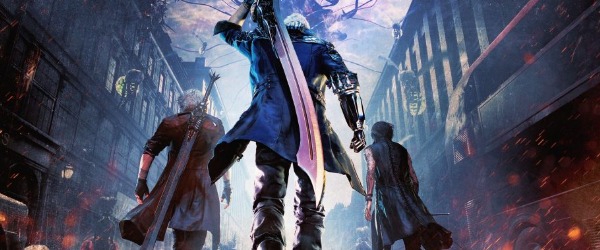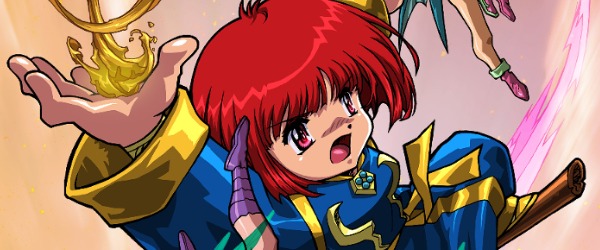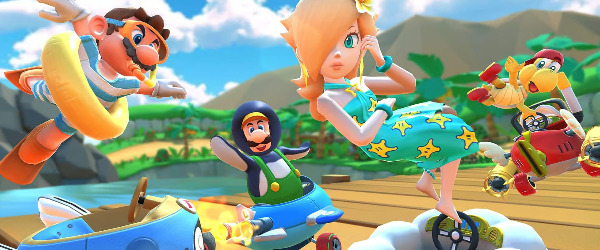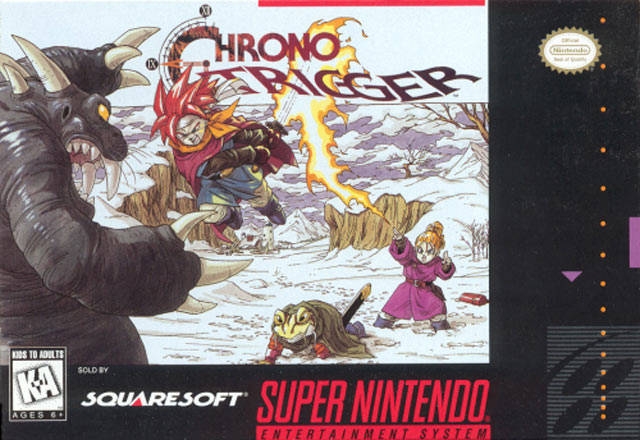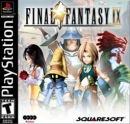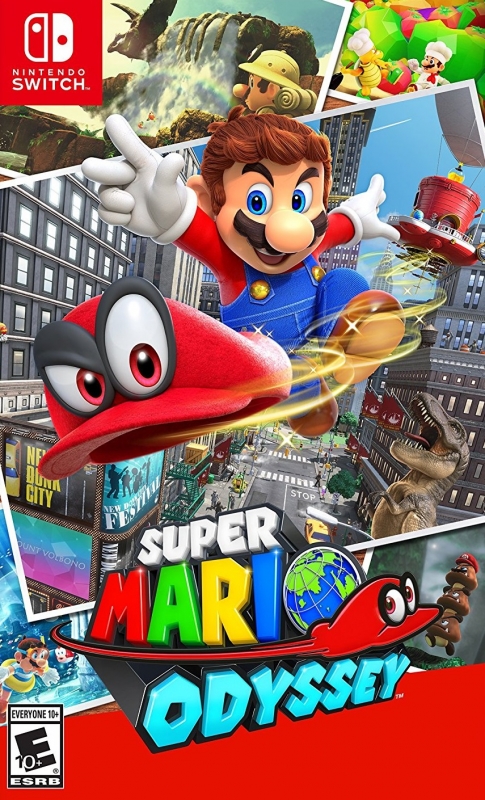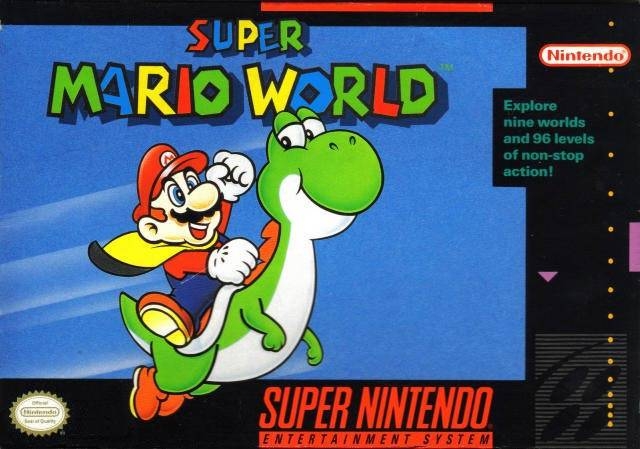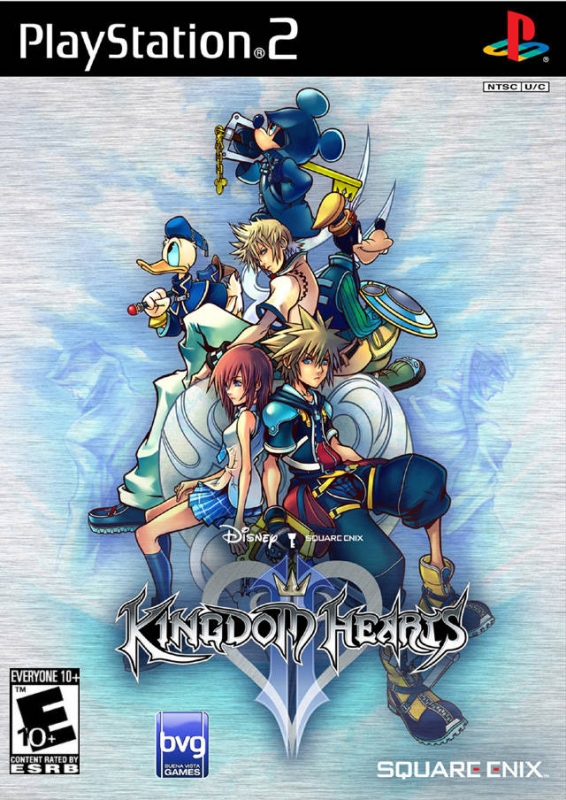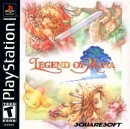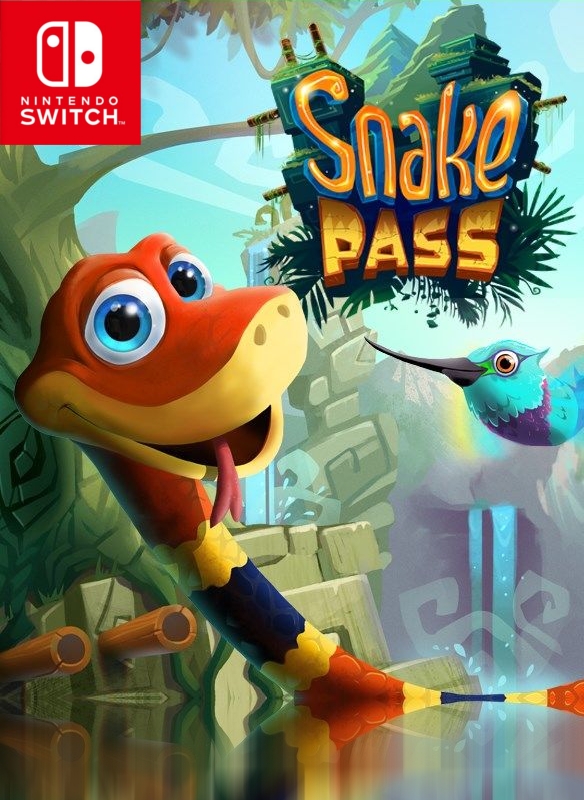
VGChartz's Top 50 Video Game Composers (5-1) - Article
by Taneli Palola , posted on 16 January 2020 / 10,759 ViewsOver the last several weeks we've been counting down the top 50 best video game composers of all time, and now finally there are just five left to reveal. To convey how big the difference was between these five composers and everyone else during the voting, the top 5 got more points than the other 86 composers combined. However, the top 5 itself was actually very closely contested, with #5 and #4 being separated by just three points, for example.
So, without any further ramblings on my part, let's get started with the top 5. If you missed any of the previous parts you can check them out here: 50–36, 35–21, 20–16, 15–11, 10–6.
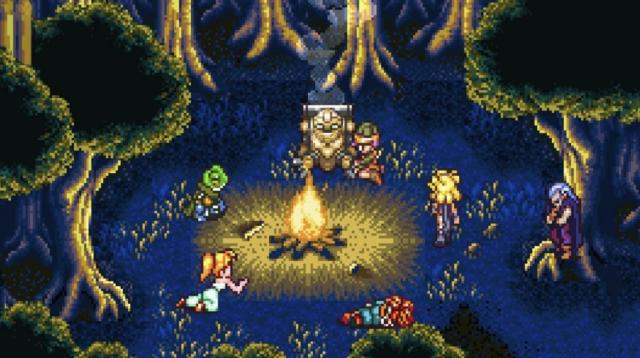
#5
Yasunori Mitsuda
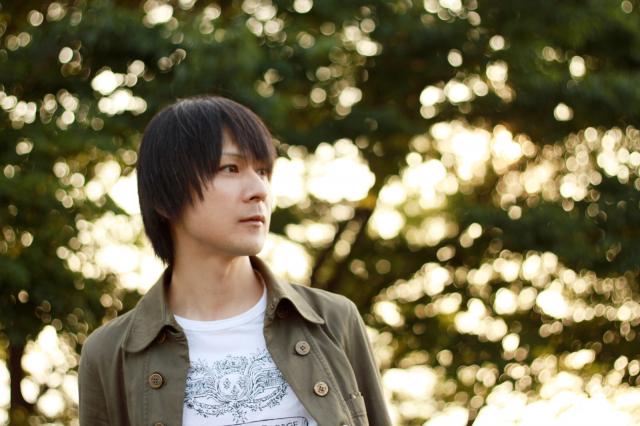
For most video game composers it takes years to achieve any level of fame or recognition for their work, remaining largely nameless and unknown to the vast majority of those who play the games featuring their music. For Yasunori Mitsuda, on the other hand, it took less than three years and exactly one soundtrack to become almost universally recognized as one of the most talented composers working in the video game industry.
Mitsuda began his career in 1992, joining Squaresoft's sound team as a composer, although for the first few years he worked as a sound engineer on a number of titles. Frustrated by this, he told Square's then-president Hironobu Sakaguchi that if he wasn't allowed to actually compose music for the company's games he would quit. He was then assigned to the team working on Chrono Trigger as the game's sole composer. Wanting to prove himself on the project, Mitsuda eventually worked himself into hospital, leading to Nobuo Uematsu taking over the composition duties for the last few tracks. Regardless, the game and its score were huge successes, and it effectively launched Mitsuda's career.
Over the next few years Mitsuda composed music for a number of Square games, including Front Mission: Gun Hazard, Tobal No. 1 and most notably Xenogears, which would be his final project while still working for the developer. Following its release he left Square to become a freelancer in 1998, although he did compose music for one more Square game after leaving; the sequel to the first game he ever composed music for – Chrono Cross.
Since leaving Square Mitsuda has kept busy, working on a number of high profile releases through the following two decades. Listing them all would take far too long, but here are just some of the highlights: Xenosaga Episode 1, Xenoblade Chronicles, the Inazuma Eleven series, Kid Icarus: Uprising, and Xenoblade Chronicles 2. Curiously, Mitsuda rarely composes entire soundtracks by himself, often working together with other composers on his projects. Just as an example, since 2009 he has been the sole composer for just four different games, with the most recent one being Valkyria Revolution in 2017.
Throughout most of his career Mitsuda has split his time between high profile releases and various smaller titles, giving each the same amount of care and attention regardless of how significant in scope the project is. In fact, some of his very best works can be found in games that most people are probably not even aware of, and that perhaps more than anything shows not only his skill as a composer but also how much he values each game he works on.
#4
David Wise
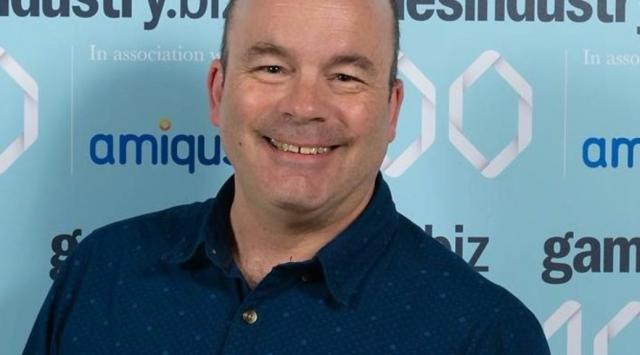
The highest ranking non-japanese composer on this list is David Wise, the legendary composer behind some of the most iconic pieces of video game music created during the 80s and 90s. He made his name working at Rare for over 20 years, where he composed music for some of the best games of each era, starting with the NES and going all the way through to the new millennium. After leaving Rare he has continued working as a freelancer, still often working together with people who once worked for Rare alongside him.
Wise's video game career began when he met Tim and Chris Stamper, the founders of Rare, while working at a music shop. Wise had programmed the demonstration music for a music computer, and when the Stampers discovered this they offered him a job on the spot. For most of his early career at Rare, Wise was the sole composer creating music for the developer's games. Among the more notable titles he worked on during this time are: Wizards & Warriors, Snake Rattle 'n' Roll, Battletoads, and Battletoads & Double Dragon.
However, it was following the release of Donkey Kong Country in 1994 that he began to gain much wider recognition and fame for his work. Coincidentally, it was also the first project he collaborated on with other composers, as Robin Beanland and Eveline Fischer provided part of the score as well. Wise would then go on to compose music for the game's two sequels - Diddy's Kong Quest and Dixie Kong's Double Trouble, after which Rare as a company moved away from the SNES as a platform. His next major projects were Diddy Kong Racing on the N64, Star Fox Adventures on the GameCube, and Viva Piñata: Pocket Paradise on the DS.
Wise left Rare and became a freelancer in 2009. He spent the next few years setting up his personal studio and as a result it would take until 2013 for another game featuring his music to be released, namely a mobile game called Sorvery! The first major post-Rare project he joined was Retro Studio's Donkey Kong Country: Tropical Freeze, working as the sole composer on the project once again. Other notable titles Wise has composed music for in recent years are Snake Pass and Yooka-Laylee in 2017, and the latter's spin-off Yooka-Laylee and the Impossible Lair in 2019.
As I was looking up information about David Wise's career, I noticed one very interesting detail - more than anyone else on this list, Wise tends to work alone on most of his projects. Out of the nearly 80 video games he has composed music for during his career, only six were collaborative efforts, with all the others being entirely his own creations. Considering the fact that this includes years when he worked on over 15 different projects by himself, that is a truly impressive achievement, and a testament to his immense talent as a composer.
#3
Yoko Shimomura
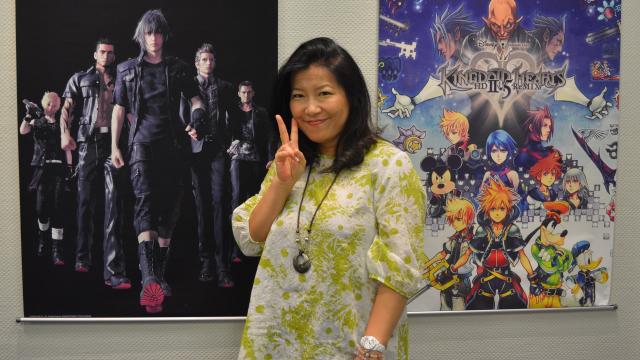
The reality of the video game industry is that women are far less represented than men, regardless of the field they work in, and the same is true for composers as well. A decent number of female composers have made a significant impact within the video game industry over the years, some of whom we've talked about in this article series, and many of them are easily among the most talented composers to have ever worked in it. Case in point, Yoko Shimomura, who is certainly a contender for best video game composer of all time.
Shimomura started her career in 1988 almost directly after graduating, joining Capcom as a composer, much to her family and instructor's dismay, as video game music wasn't the most respected of career paths. However, it didn't take long for her to start establishing herself as one of the most talented rising composers, working on games like Final Fight, Nemo, and then the game that first brought her greater recognition - Street Fighter II: The World Warrior. Despite her success at Capcom, Shimomura felt stuck working in their arcade department on games she didn't really care that much for; she would have much preferred to work on the company's RPGs like Breath of Fire. Eventually she decided to leave Capcom to join Squaresoft instead, where she would get her wish.
Soon after joining Square, Shimomura began working on a SNES RPG called Live a Live, after which she began working on her first major project at her new employer - Super Mario RPG. At the same time she was also co-composing the score for another SNES title, Front Mission, which was followed by her first PS1 title, called Tobal 1. All of these titles came out within two years of each other, keeping Shimomura extremely busy at the time as they were all fairly sizable games. However, they also marked her as one of Squaresoft's leading composers going forward, and over the next several years she worked on some of the developer's biggest projects, including Parasite Eve, Legend of Mana, and then the first game in the series that she is to this day most well-known for - Kingdom Hearts.
Shimomura left Square in 2002 and became a freelancer soon after, although she has kept up a close working relationship with the developer to this day, which has seen her compose music for every major Kingdom Hearts game to date, Heroes of Mana, The 3rd Birthday, as well as Final Fantasy XV. Besides her work with Square Enix, she has composed music for Nintendo's Mario & Luigi-series of RPGs, starting with 2003's Superstar Saga, Atlus' Radiant Historia, and Xenoblade Chronicles, among numerous other titles.
As of 2020, Yoko Shimomura is inarguably one of the biggest names in the video game music industry. Her work is consistently excellent and a number of her video game scores could easily be listed among the very best of all time. Even if she stopped composing music for video games altogether her place as one of the greatest video game composers of all time is pretty much set in stone. Fortunately, we'll likely get to enjoy her work for many more years to come.
#2
Koji Kondo
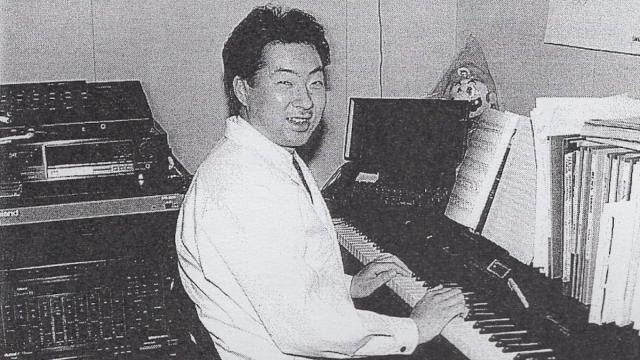
If we were ranking composers based on how iconic and memorable their music in video games has been, there would be no question about who would take the #1 spot. Koji Kondo is quite possibly the only video game composer who can make the claim that their work has genuinely trancended the world of video games and become part of mainstream culture. Other composers may have individual pieces that even some non-gamers recognize, but for most people the only video game songs they are likely to know are ones Kondo has written.
Kondo joined Nintendo in 1984 after he saw a recruitment ad from Nintendo on his university's announcement board. He applied for a job at the company and was hired soon after as a composer and sound designer. At first he mostly worked on games that were fairly limited in scope, at least as far as their music and sound were concerned. These included the likes of Devil World, Soccer, and Kung Fu on the NES. Soon after this, however, he was put in charge of the music for a game that would effectively launch his career as a composer – Super Mario Bros.
Kondo created the soundtrack for Super Mario Bros. with the limitations of the NES in mind, wanting to compose the kind of melodies that could be listened to over and over again without them ever getting boring. He then followed up this score with one for The Legend of Zelda, meaning that within the span of two years Kondo essentially created the most well-known pieces of video game music ever. Over the next several years he would compose music for games like The Mysterious Murasame Castle, Shin Onigashima, Doki Doki Panic and, of course, Super Mario Bros. 3. After that he turned his attention to the SNES and the next major installment in the Mario series - Super Mario World.
When it came to the SNES Kondo worked on just a handful of titles, but each of them are among the platform's most beloved games. These were Pilotwings, Star Fox, Yoshi's Island, and The Legend of Zelda: A Link to the Past. Although he only composed music for the last two titles (and a single track for Pilotwings), he was still responsible for some of the very best music on the console. Similarly, on the N64 he only composed music for a few games, but when that list consists of Super Mario 64, Ocarina of Time, Star Fox 64, and Majora's Mask, it's hard to really complain. Ocarina of Time would also be the last time Kondo ever composed an entire video game soundtrack by himself.
Since the early 2000s Kondo has generally limited himself to composing new music for the Super Mario and The Legend of Zelda-series, while providing support on a variety of other projects. Even when he has crafted new music for games he has rarely been the main composer, so with titles like The Legend of Zelda: Wind Waker, Super Mario Galaxy, and even Super Mario Odyssey, which featured a fairly large number of his tracks, the majority of the music was composed by other people.
However, even though Kondo has mostly allowed other composers to take over most of the actual composing duties on the games he continues to work on, he does still create some new music from time to time. For the most part he tends to focus on more supportive roles these days, whether as an advisor, supervisor, or sound director, but I wouldn't be surprised to hear at least a few new pieces from him whenever a new major Mario title comes out. As a composer he has established a legacy nearly unrivalled within the video game industry, to the point that only a few others can even be mentioned in the same category.
#1
Nobuo Uematsu
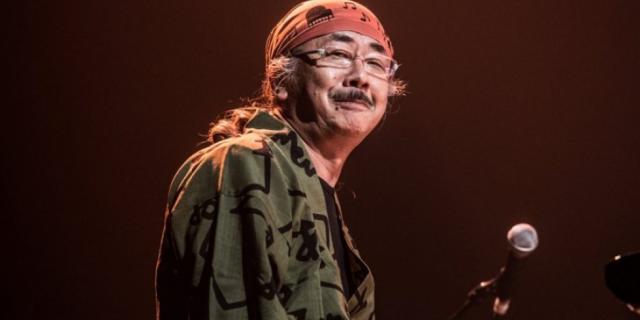
As much as I talked about how close the top 5 was, there was pretty much never any doubt who was going to end up in the top spot, and in the end the gap between #1 and #2 was over 30 points, the second largest between two spots on the entire list. Nobuo Uematsu is another composer who is primarily known for his work within a single franchise, but since the mid-1980s he has composed music for a wide variety of different video games, and many of his scores are among the very best of all time. Uematsu is without question one of the few video game composers for whom the argument as the best ever in his field can be made without any reservations.
Uematsu joined Squaresoft as a composer in 1985, although he initially only considered it a side job and never expected it to turn into a full career. At Square he soon met with Hironobu Sakaguchi, who asked Uematsu to compose music for his game. The latter fortunately agreed, beginning a working relationship that has lasted to this day. Most of the games Uematsu composed music for during those first few years didn't find much success, with the notable exception of 3-D Worldrunner and Rad Racer. However, at the tail end of 1987 Uematsu and Sakaguchi collaborated on what was initially meant to be the latter's final video game project, but which ended up launching both of their careers – Final Fantasy.
At this point Uematsu's career trajectory changed. While he would still occasionally compose music for other titles as well, he spent the next decade-and-a-half creating the scores for every new mainline Final Fantasy game, up to Final Fantasy XI, with the scores for the first nine being solo compositions. These would include many of the soundtracks that are today regarded as some of the best ever created for any video game. During this same period he would occasionally work on other titles as well, most notably Chrono Trigger, Final Fantasy Legend I and II, and Front Mission Gun Hazard. He also provided arrangements and individual songs for yet more games, including Final Fantasy Tactics advance, for which he also composed the game's main theme.
In 2004 Uematsu decided to leave Square Enix, founding his own production company called Smile Please and becoming a freelancer in the process. He would still remain closely associated with his former employer, and has worked on numerous titles for Square Enix ever since. Another company he has worked very closely with since then is Mistwalker, Hironobu Sakaguchi's new studio. In 2006 he composed the score for the developer's first game, Blue Dragon, and in the following years he has created the music for Lost Odyssey, The Last Story, and Terra Battle for Mistwalker, among several others.
Uematsu also never really left the Final Fantasy series, composing the main theme for Final Fantasy XII and then composing the entire score for the first version of Final Fantasy XIV (one of the only parts of the game that was actually good). Besides his work with Square Enix and Mistwalker, since becoming a freelancer Uematsu has composed music for games like Lord of Vermilion, Super Smash Bros. Brawl, Fantasy Life, Fairy Fencer F, and Hometown Story, and even with all of those we're just scratching the surface. He's also going to be involved in the remake of Final Fantasy VII, working on the game's music in a currently undisclosed role.
Whether it's in terms of sheer talent, wider recognition both within and outside of the video game industry, quality of work, or almost any other qualifier, there are very few video game composers on the same level as Nobuo Uematsu. With the possible exception of Koji Kondo, he has composed more iconic pieces of video game music than anyone else, and his work in general has been consistently excellent throughout his entire career, boasting some of the most ambitious and impressive pieces of video game music ever created. The fact that he is entirely self-taught as a musician makes all of this even more impressive.
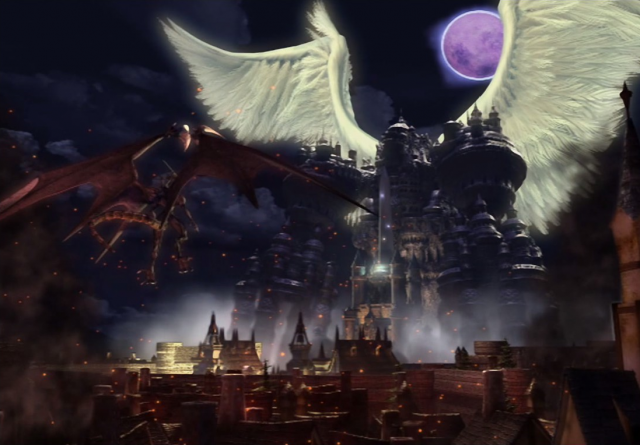
I hope you've enjoyed this countdown of the greatest video game composers of all time. Who is your personal favourite game composer and why? Do you agree with the list? Are there any composers who didn't make it into the top 50 that you feel should have? Leave a comment below and share your opinion.
More Articles
I believe Koji Kondo should be number 1 but Nobuo is a very good choice. Also good to see Yoko in the top 3. That ending song of Legend of Mana...
Number one composer is at the right spot.
I got to meet him at Distant Worlds in Omaha in 2013, and it was on his birthday no less. He autographed my FF9 cover insert.
100% agree. The man is legendary.
A fantastic list, I found it hard to rank mine, except when it came to the top position. That was definitely Uematsu for me.
The number one and two composers are exactly right.
Now, that's a damn good Top 5 list right there!
Nobuo Uematsu is my #1. Final Fantasy is one of my 2 favorite series and it easily gets the most entries in my top 50 games. But what I realized with RPGs is that the music really affects how much I enjoy the story. Especially when you go back to Generations 4 and 5, the character models are so basic that it is really the music setting the mood and doing so much of the storytelling. I love so many Final Fantasy games, but Uematsu may actually be the main reason why I do.
Yoko Shimomure in the top 5 is a surprise for myself. The other 4 were obvious.
Very solid Top 5! I personally had 4 of them in my Top 5 with only Kenji Yamamoto in the place Shimomura. I absolutely adore Nobuo Uematsu's work and he's regularly in my Top listened to artists on Last.fm
I love this top 5, I had 3 of them in my own top 5 and David Wise in the top 10. Im a bit surprised by the huge love for Shimomura but I cant say its not deserved. Fantastic list all in all and I got to update my track list :P
I dont know. Who ever composed the soundtrack for the original resident evil, is a genius, and my fav of all time. Also probably equal would be the shadow of colossus soundtrack.
I dont know. Who ever composed the soundtrack for the original resident evil, is a genius, and my fav of all time. Also probably equal would be the shadow of colossus soundtrack.
Hirokazu Tanaka (Some notable works: Donkey Kong, Metroid, Earthbound, Fire Emblem) for his very innovative take on the music genre which included gaps of silence designed to build tension; no one else had done that before. He is also one of the major pioneers in video game music. Another I’d have picked is Hitoshi Sakimoto for his sheer volume of high quality work some of which includes: Final Fantasy Tactics, Vagrant Story, FF12, The Ogre Battle franchise, Tekken franchise, the Valkyria Chronicles franchise, Muramasa the Demon Blade, and dozens more, as well as a dozen or so animes. Also, Mitsuda doesn’t generally work alone because he has a history of stress and anxiety disorders which have seen him hospitalized before (Chrono across in particular, Square nearly worked the team to death, he was one of the casualties - Chrono Cross’s development was the catalyst for a mass exodus from Square).
Same top 5 for me, though I might put them in a different order. It's a tough toss up for me between Koji Kondo and Yoko Shimomura for #1, probably would have to just barely give it to Koji, then another tough toss up for third between Nobuo Uematsu and David Wise, probably would just barely give it to Nobuo. All 5 here are absolute legends though.








